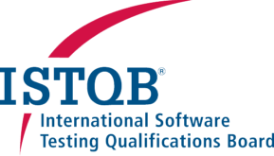Our Certifications
Whether you are new or already established in the testing profession, ISTQB® certification will support you throughout your career. For employers, the ISTQB® Certified Tester scheme will help you to develop and validate the skills in your team, and support recruitment. ISTQB® certifications offer Training Providers multiple opportunities to extend their training course portfolios. Click on each certification for more information.
The Foundation Level certification gives practical knowledge of the fundamental concepts of software testing and forms the basis of the ISTQB® Certified Tester Scheme.
 Read More
Read MoreCTFL 3.1 in English is retired from 9th November 2024.
 Read More
Read More Read More
Read MoreThe Test Automation Engineering syllabus is targeted to the test engineer looking to implement or improve on test automation. It defines methods and practices that can support a sustainable solution.
 Read More
Read MoreThe Advanced Level Test Management certification provides the knowledge needed to take responsibility for managing testing activities, designing suitable test approaches, developing test strategies, and building test teams.
 Read More
Read MoreThe Advanced Level Test Manager certification provides the knowledge needed to take responsibility for managing testing activities, designing suitable test approaches, developing test strategies, and building test teams.
 Read More
Read MoreThe Advanced Level Technical Test Analyst certification provides a thorough introduction to the technical testing skills which are fundamental in many development organizations today including risk-based testing, white box testing, static analysis, non-functional testing, and test automation.
 Read More
Read MoreThe Certified Tester Test Automation Strategy Specialist qualification is aimed at anyone involved in software testing and test automation. The syllabus presents multiple factors that come into play when planning for test automation within an organization.
 Read More
Read MoreThe Certified Tester AI Testing qualification extends understanding of artificial intelligence and/or deep (machine) learning, most specifically testing AI based systems and using AI in testing.
 Read More
Read MoreThe Game Tester certification includes the basic concepts of video and game testing, approaches to games testing (Mechanics, Sound, Graphics, Game Level, Game Controller and Localization) and conceptually designing, implementing and executing game software tests.
 Read More
Read More Read More
Read MoreThe Test Automation Engineer certification is focused on the design, development, and maintenance of test automation solutions, and also covers the automation of dynamic functional tests.
 Read More
Read More Read More
Read More Read More
Read More Read More
Read MoreThe Gambling Industry Tester certification covers the key concepts in the gambling industry, the gambling industry ecosystem, and the different test types common to the gambling industry.
 Read More
Read More Read More
Read MoreThe Security Tester certification focuses on planning, performing, and evaluating security tests from multiple perspectives including risk, requirements, vulnerability, and human factors. It also covers security testing tools and standards.
 Read More
Read MoreThe Model-Based Testing certification focuses on an advanced test approach of using models for testing. It extends and supports classic test design techniques such as equivalence partitioning, boundary value analysis, decision table testing, state transition testing, and use case testing.
 Read More
Read MoreThe Foundation Level Agile Tester certification provides the knowledge of the testing skills required to effectively contribute to an Agile project.
 Read More
Read MoreThe Advanced Level Agile Technical Tester certification provides a thorough introduction to the technical testing skills which are fundamental in organizations using an Agile development approach. These skills include testing and agile techniques, test automation approaches, and continuous deployment and delivery.
 Read More
Read MoreThe Agile Test Leadership at Scale certification provides the crucial knowledge and skills needed to be part of an organizational transformation journey from team agility to business agility. It covers how to change from a traditional approach to a quality assistance approach.
 Read More
Read MoreThe Expert level Improving the Test Process certification provides insights that prepare individuals to fulfill the specific expert role within their organization or project. This part--Assessing the Test Process--focuses on assessing and advising on test process improvements.
 Read More
Read MoreThe Expert level Improving the Test Process certification provides insights that prepare individuals to fulfill the specific expert role within their organization or project. This part--Implementing test process improvement--focuses ensuring that the implementation of test process improvements take place effectively and stand the best chance of success.
 Read More
Read More Read More
Read More Read More
Read More Read More
Read More